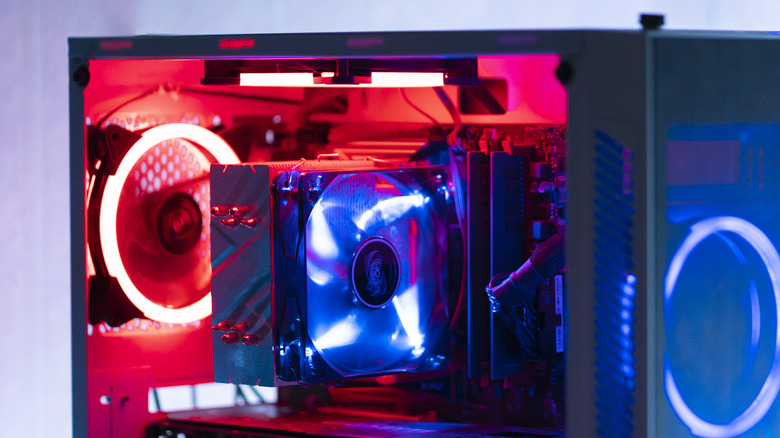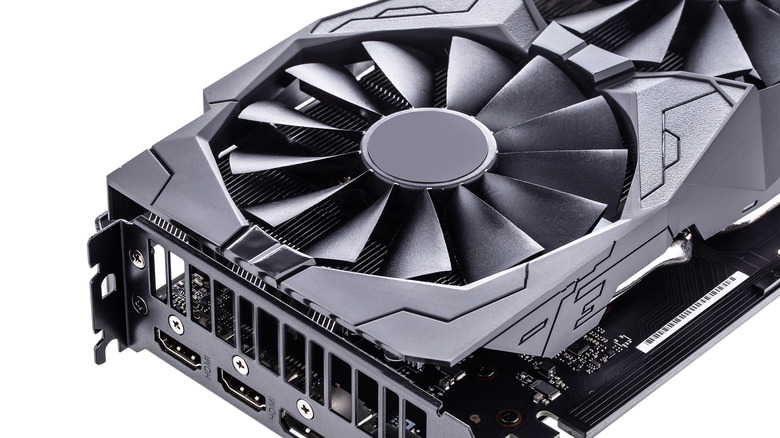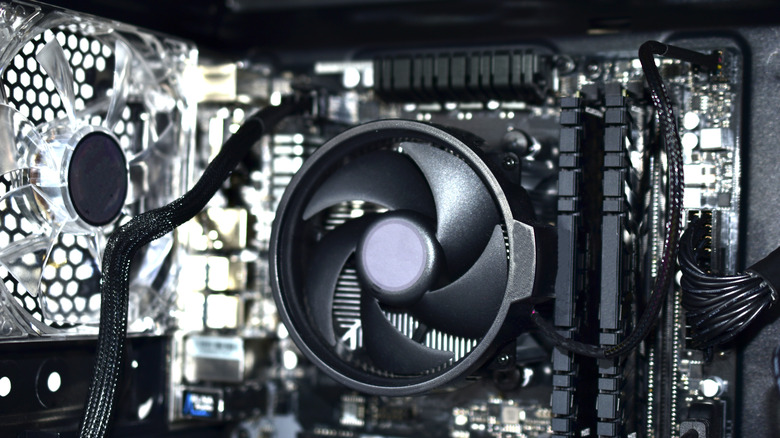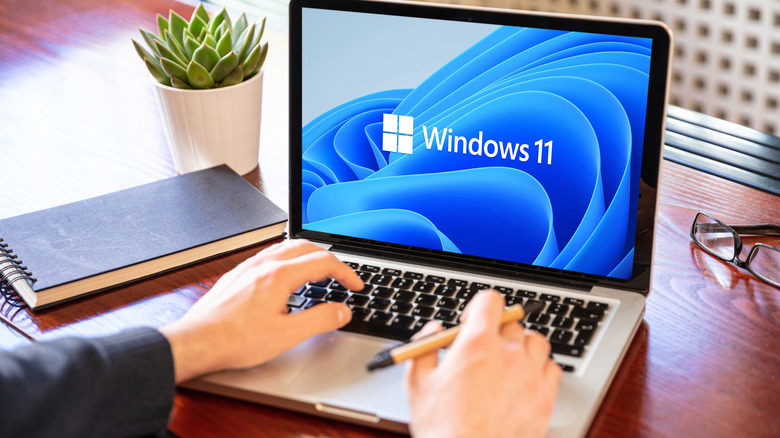The Reason Why Your Games Keep Crashing On Windows 11 And How To Fix It
There are few things as existentially frustrating as having your PC games consistently crash on you. A random crash here and there is a frustrating, yet expected part of being a PC gamer, but when you encounter a steadfastly recurring crash that you cannot identify the cause of, it's like the tech support equivalent of being handed a glass Rubik's cube. There's definitely a problem and definitely a solution, but you're flying blind on both counts, and an aggressive move could end up breaking the whole thing.
Luckily, while many game crashes on Windows 11 may appear random at a glance, there is a method to it all. No matter what kind of crashes you're battling, there is a checklist of hardware upkeep tricks you can go down to find the solution, or at the very least, a definitive cause that you can address with upgraded parts or professional assistance.
Low specs, improperly configured settings, or outdated drivers
One of the most common causes of gaming-related problems on a PC is underqualified hardware. Your PC's components may not meet the minimum requirement to run the game properly. You can check the game's page on the storefront you bought it from to find the recommended specs (which you should be doing before buying a game if you weren't already).
Even if your PC isn't at the height of the game's recommended specs, however, you may still be able to run it by lowering the game's operating settings. Try turning down the graphical quality, disabling advanced settings like ray tracing, or running the game at a lower framerate or resolution.
The drivers for your PC's GPU may also be out of date. You receive regular manufacturer driver updates for your GPU to ensure it can handle the latest games. Your PC should have a graphical utility preinstalled for your GPU, which you can use to update its drivers. Make sure to check for new drivers on a regular basis; the utility will usually send you a reminder when it's time to update if you leave it running.
Overburdened PC, overheating, or power problems
If your PC has too many programs running at the same time, it won't have enough processing power to run a game. Close programs and utilities you aren't actively using like web browser windows or other game platforms (Steam, Epic Games Store, Game Pass, etcetera). In extreme cases when your PC has too heavy of a processor load, its internal temperature may jump to unsafe levels while gaming, prompting an emergency shutdown. Use a temperature utility like HWiNFO64 to ensure your computer isn't overheating, check the status of cooling parts like fans and liquid coolers, and make sure to periodically clean any dust out of the case with compressed air.
Similarly to overheating, your PC's power supply unit (PSU) may have some manner of problem causing it to either draw too much or not enough electricity. This can be especially problematic when using powerful GPUs with high energy requirements. You can monitor these kinds of problems with temperature utilities as well. Assuming the problem isn't caused by heat from malfunctioning cooling equipment or dust, you may need to upgrade your PC with a new PSU.
External interference or OS incompatibility
While Windows 11 is supposed to be able to run any game compatible with previous Windows versions, certain games may be incompatible with it. In these cases, game developers will usually be upfront about the matter, so check the game's store page to see if there are any incompatibility warnings. If the game isn't compatible with Windows 11, you can try running it in Compatibility Mode:
- Right-click on the game's .exe file and select Properties.
- Switch to the Compatibility tab.
- If you know which version of Windows the game will work with, check the Compatibility Mode toggle and select the version you need.
- If you don't know which version the game will work with, run the Compatibility Troubleshooter.
Meanwhile, certain programs, out of no malicious intent, may prevent your games from running properly. These include things like digital rights management (DRM) software, VPNs, or antivirus utilities. DRM like Denuvo regularly connects to the internet to verify the authenticity of your copy of a game, which can place a burden on your processor and network.
In some cases, this can be circumvented by simply playing the game offline, though not all games offer this option. VPN problems are often caused by weak networks, which you can solve by upgrading to a faster VPN or just turning it off entirely. As for antivirus utilities, you can add exceptions for the game's .exe file to the utility's settings to ensure it doesn't stymie the game's operation.
What to do if you are still having problems
If you've tried multiple troubleshooting methods and you're still having problems with mysterious crashes, it may be time to source some external opinions. For one thing, the particular crash you're experiencing may not be a problem on your end. Visit the game's user forums on Steam or publisher websites, as well as on social platforms like Reddit to see if anyone else has been reporting crashes as you've experienced.
Not only can you find potential solutions from other users, but this is also a good way to get in touch with the game's developers or support staff. If you're asking for help, be ready to provide a general readout of your PC's specs like your processor and graphics card. Every bit of information helps!
If you're still beset with crashes, either when playing a certain game on Windows 11 or playing any game, then you may have a critical hardware issue or your PC is just at the end of its life cycle. If that were the case, though, you would probably notice more pressing problems with it like slow load times or random shutdowns. In all likelihood, one of the causes outlined above will contain the answer you're looking for.




